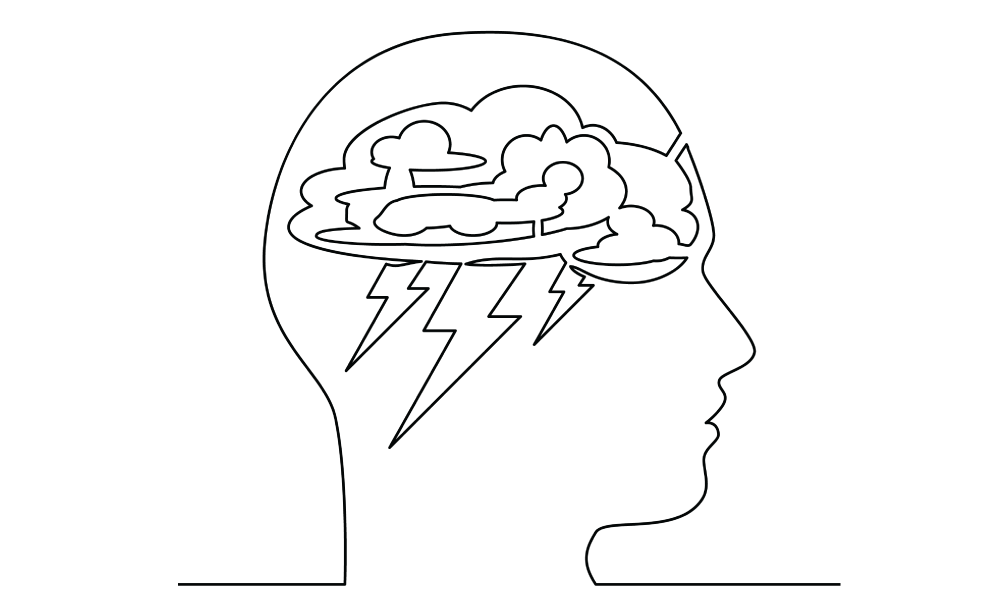
There are many misconceptions about marijuana use, chief among these is the idea that regular marijuana use is not habit forming. Contrary to popular belief, after prolonged periods of heavy use, many individuals will experience cravings and marijuana withdrawal symptoms as your body adjusts to the absence of cannabis (E. Chauchard, The Brain, 2013; Levin, Drug and alcohol depend, 2010).
Headaches are one of the most common marijuana withdrawal symptoms. Headaches are not experienced by everyone who quits using, but for some, they can be intense and even debilitating. The headaches can be localized to any part of the head and usually present in more than one location.
Headaches typically start 1-3 days after quitting and may become more severe within the first week. In most cases, after about two weeks, the symptoms generally subside. However, some former-marijuana users report persistent headaches for weeks or months after quitting.
Research shows that marijuana withdrawal headaches can be common in younger marijuana users. In a 2006 study of 72 marijuana users aged 14 to 19, 25% reported moderate or severe headaches during withdrawal (Vandrey, Drug and alcohol depend, 2005). A separate 2012 study found that the earlier age of first marijuana use was correlated with higher incidence of headache – interestingly, this correlation was not observed in other commonly abused substances (Beckmann, Clinical neurology and neurosurg, 2012).
More recent research is beginning to shed light on the cause of headaches during marijuana withdrawal. THC has been shown to have direct action on many areas of the brain related to pain regulation. THC binds to CB1 receptors in the brain but also interacts with other receptors including serotonin, NMDA, and dopamine receptors. When the brain is no longer flooded by THC and other cannabinoids, the system must readjust, which is believed to cause to headaches in some (Elsohly, Life Sci, 2005; EP Baron, Headache Currents, 2018).
People who report headaches as a long-term side effect of quitting marijuana may find it hard to cope. However, if you suffer from these types of headaches, do not despair. There are things you can do to fight back.
First contact your doctor. They may discover that your headaches are caused another, non-marijuana related condition or they may be able to treat your headaches with medications. Additionally, certain lifestyle modifications could help ease your withdrawal-related headaches including meditation, regular exercise, eating a balanced diet, and good sleep hygiene.

Leah Zuroff, M.D., M.S.
Contributing Author
Dr. Zuroff completed medical school at the Perelman School of Medicine, where she concurrently received a Master of Science in Translational Research.
Related Posts
About Weedless.org
Weedless.org is a free, web-based resource and community created by a team of healthcare professionals and researchers. We distill the facts about marijuana use and its effects into practical guidance for interested persons or for those who are thinking about or struggling to quit weed. Finding reliable, easy to understand information about marijuana should never be a struggle—that is why our core mission is to provide the most up to date information about marijuana use, abuse, addiction, and withdrawal. While we seek to empower individuals to have control over their use, we are not “anti-weed” and we support efforts to legalize adult marijuana use and study.
Thanks for this info. I contracted covid, the covid headaches were so tremendous that i could not smoke for bout 3 weeks, cold turkey. Now I can’t smoke at all,,, it causes amazingly painful headaches. I have quit smoking and needed to know it wasn’t life threatening! They are easing after about two more weeks.
Thanks. This is the first article I have ever read that mentions withdrawal headaches that match my experience of lasting “months”.
As a long time heavy user smoking an average of 20 grams a month over 35 years “withdrawal headaches” are the worst side effect I get, along with a some minor body/muscle pains which last a few weeks.. I don’t seem to experience any other common side effects I read about like appetite loss, depression or insomnia, but experiencing/remembering dreams is certainly unusual for me, and admittedly fairly pleasurable.
I gave up for 3 months a couple of years ago which was my longest ever break and had a deep but not too overbearing headache set in after about 7 days and never went away the entire 3 month period. I eventually got sick of that and the second night after starting smoking cannabis again the headache was totally gone.
I am currently on a break for the last 3 weeks which is probably only the 3rd time in my life I have gone without more than a week, and that same familiar dull headache is back. It kind of feels like a next morning “stoneover” that just never goes away. Maybe when I turn 50 years old I will try a 6 month break and see if that is long enough to clear the headache!